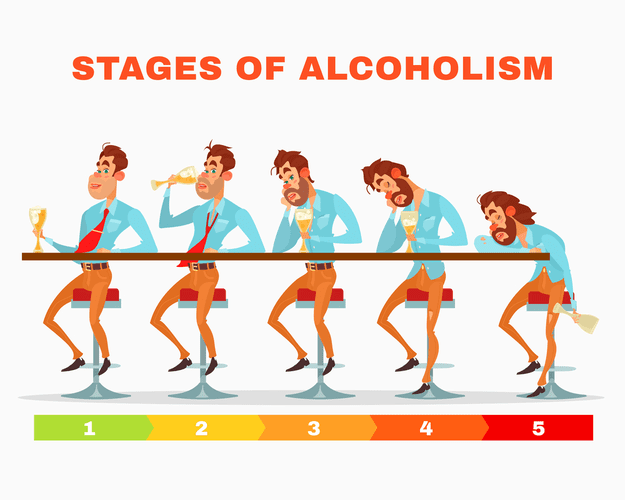Early studies suggest psilocybin can help people with PTSD But the VA doesnt allow it. Will veterans be left behind?
Police, firefighters, and paramedics may become quick to anger on and off duty. They offer drunk aggression information, coping strategies, and a sense of community for those managing PTSD-related anger. Community involvement often decreases as the person with PTSD withdraws from social activities. This reduction in social support networks can exacerbate symptoms and hinder recovery efforts. In wider social circles, PTSD-related anger can lead to misunderstandings and conflicts.
Narrative exposure
Teaching healthy coping skills and emotional regulation techniques is a key focus of our program. These skills are essential https://ora777.net/xanax-addiction-the-long-term-effects-of-xanax-use/ for managing the intense emotions that can arise during recovery and for developing alternatives to alcohol use. Trauma is a deeply distressing or disturbing experience that overwhelms an individual’s ability to cope. It can take many forms, including physical abuse, sexual assault, emotional neglect, witnessing violence, or experiencing a life-threatening event. The effects of trauma on the brain and behavior can be far-reaching and long-lasting.

Clinician-Administered PTSD Scale
- Alcohol use disorder (AUD) and post-traumatic stress disorder (PTSD) are highly prevalent and debilitating psychiatric conditions that commonly co-occur.
- Veterans—especially those who were deployed to combat zones—are also more likely to experience PTSD than civilians.
- Each VA Medical Center has treatment resources, including a PTSD-SUD specialist who is trained to treat Veterans with PTSD and substance use problems.
- There is also therapy that combines—or integrates—treatment for both problems and is delivered by the same therapist in a single treatment.
This involves not only helping the alcoholic recover but also healing the PTSD from an alcoholic spouse experienced by partners and children. Living with PTSD from an alcoholic spouse is emotionally and physically draining, but there are ways to protect your well-being and encourage positive change. At home, the alcoholic’s neglect of familial roles shifts a disproportionate share of responsibilities onto their partner. This PTSD from an alcoholic spouse creates resentment and further distances the couple emotionally, leaving the partner feeling unsupported and alone. Living with an alcoholic spouse can have a significant impact on your relationships with family members, including your husband and your marriage.
Create a file for external citation management software
- With the right support and treatment, it is possible to improve your mental health and quality of life.
- The current study examined the associations among PTSD symptom severity, alcohol use to down-regulate both negative (i.e., despondency and anger) and positive emotions, and alcohol misuse.
- Whether it’s through counseling, exercise, or social support, finding the right coping skills for you can make a significant difference in your quality of life.
- Our team of experienced professionals is trained in a variety of therapeutic modalities, ensuring that each client receives the most appropriate and effective care for their specific needs.
- Training programs help managers support affected staff members effectively.
Several theories regarding the mechanism of action by which PTSD and alcohol use disorder co-occur have been posited in the literature, and the research on effective treatments has been mixed. Trends in research drug addiction and clinical practice have been to offer integrated treatments for alcohol use disorder and PTSD, but treatment providers have yet to reach consensus for the best approach. Given the extensive exposure to traumatic events among military personnel, PTSD has emerged as the 3rd most prevalent diagnosis in veterans using VA services, after pain disorder and depression (Stecker, Fortney, Owen, McGovern, & Williams, 2010). Prevalence rates of PTSD among returning veterans have varied widely (estimates ranging from 5-50%), due to differences across study populations and diagnostic definitions used to determine PTSD status (Ramchand et al., 2010). Given the stigma surrounding mental health status and the fact that relatively few veterans have sought services for PTSD (Hoge, 2004), the true prevalence of PTSD in the U.S. veteran population is likely higher than the current estimates.

Timeline of the Mark Sanchez stabbing and arrest
Living with an alcoholic spouse can be a traumatic experience, and it can lead to a range of mental health issues, including post-traumatic stress disorder (PTSD). PTSD is a mental health condition that occurs in people who have experienced or witnessed a traumatic event. In the case of an alcoholic spouse, the traumatic event is the ongoing abuse and neglect that the partner experiences. Seeking professional help is paramount for individuals struggling with co-occurring PTSD and alcohol use disorder. Integrated treatment approaches that address both trauma and substance use offer the best chance for successful recovery. With appropriate support, therapy, and ongoing management, individuals can learn to manage their symptoms, develop healthy coping mechanisms, and work towards a life free from the grip of trauma and addiction.
